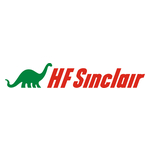As one of Australia’s leading suppliers of LPG, as well as industrial, medical, hospitality, bulk industrial liquids, specialty, and helium gases, Supagas knows that to stay ahead in a dynamic market, it must be responsive to the trends shaping its industry.
Here are five key trends affecting the gas sector in 2025 – and how Supagas is addressing them.
The continued importance of the gas sector to Australia’s economy and employment
The gas sector – which includes natural gas and LPG – is a powerhouse within Australia’s economy, generating over $121 billion in economic activity and supporting approximately 258,779 jobs. Research suggests the direct value added to the Australian economy by LPG production alone is roughly $2 billion.
As a leading LPG provider, Supagas sees this contribution not just as a statistic but as an opportunity to lead responsibly and innovate effectively.
“Our industry underpins many aspects of Australian life and commerce,” Supagas director of branch operations and sales Corey Smith said. “At Supagas, we are dedicated to enhancing our operational agility to effectively address the economic and logistical demands we face.”
Supagas’ investments in technologies like telemetry monitoring units on LPG vessels – as well as its plans for investment in AI-driven customer engagement tools – contribute to sustaining this economic impact by improving delivery efficiency and optimising customer interactions.
These innovations are complemented by Supagas’ commitment to workforce training, ensuring that employees are equipped to excel in a dynamic energy landscape.
Households and businesses seeking stability amidst economic fluctuations
Gas – including but not limited to LPG – remains a cornerstone of Australian households and businesses, fuelling seven million homes and numerous commercial operations. Supagas plays a pivotal role in ensuring this essential service remains reliable and effective. In 2025, this means not only maintaining but enhancing their service offering.
One example of this is Supagas introducing fixed pricing offers for new domestic customers over the past three years to support cost of living pressures.
Although not part of its standard pricing model, this offer for new domestic residential customers shows Supagas’ commitment to putting the customer first.
“Our focus is always on providing a reliable LPG supply while addressing the specific needs of each customer segment,” Smith said. “Whether it’s a family relying on LPG for household heating or a large-scale commercial operation, Supagas is there to support them.”
Furthering the sustainability agenda
The future of energy is predicated on its long-term sustainability, and the gas sector has a big part to play. Supagas recognises the shift towards renewable, zero-emission gases as critical to achieving a sustainable energy future beyond 2050.
“At Supagas, we recognise that trust is built on transparency and action,” Smith said. “That’s why we’ve committed to regularly reporting on our sustainability initiatives and progress, ensuring our customers and stakeholders see the tangible steps we’re taking toward a renewable future.
“Beyond that, we’re integrating more sustainable practices – from minimising waste to adopting energy-efficient technologies – so we can reduce our environmental impact while continuing to deliver the reliable service our customers expect.”
Focus on a renewable future
As the gas and energy industry evolves and becomes more prominent, certification schemes are gaining traction, providing a framework for recognising and integrating these alternatives into the energy market. Supagas actively supports the development and adoption of these standards.
Certification schemes are crucial to validating renewable gas options and ensuring market confidence. Supagas actively supports the development and adoption of these standards by leveraging its operational excellence and community outreach to build trust in these emerging solutions.
“Achieving LPG certification is not just about compliance – it’s about demonstrating leadership in sustainability,” Smith said.
“Certification gives customers tangible proof of our commitment to reducing emissions. This not only supports industries striving to lower their environmental impact but also makes Supagas a clear choice for organisations prioritising sustainability in their energy suppliers.”
Technological innovation, operational agility more important than ever
As highlighted in McKinsey & Company’s globally focused The State of Energy Organizations 2024, the coming decade will demand bold strategies, technological innovation, and a clear focus on agility to address challenges such as affordability, reliability, and sustainability in energy systems.
Innovation and operational excellence are front and centre of Supagas’s vision for 2025. Through an expanded ‘Yes We Can’ campaign, the company is encouraging employees to embrace problem-solving and ingenuity in everything from customer interactions to workplace improvements.
Initiatives like enhanced onboarding programs and a forthcoming implementation of new CRM systems reflect this focus, fostering deeper customer understanding and satisfaction.
“Supagas recognises that agility is critical to staying ahead in the energy market,” Smith said. “By adopting lean principles, cross-training employees for multi-role flexibility, and investing in data analytics platforms like Microsoft’s Power BI, we’re ready to respond to the market shifts and customer demands coming our way.
“From implementing a new CRM system to telemetry tools that optimise LPG delivery, every advancement we’re making at Supagas is designed to drive efficiency and reinforce trust. As a four-years-running winner of the Canstar Blue Most Satisfied Customers rating, we’re primed to continue delivering on that ‘Yes We Can’ promise to our customers – in 2025 and beyond.”



